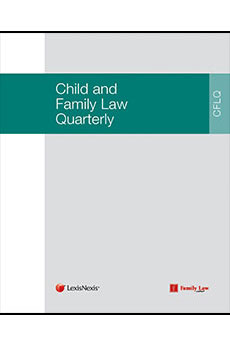- News & Comment
-
Online Shop
Online Services
Looseleafs
Law Reports
Books and eBooks
-
CPD & Events
Webinars
Events
- Authors
- About Family Law
- Contact




Experts in cases relating to children
McFarlane explains that legal professionals, even those specialising in family courts, are not professionally qualified to ‘assess and advise upon matters of child development, children’s emotional well-being and, more generally, matters regarding a child’s welfare’.
Judges rely mainly on common sense and common knowledge in their decision-making, and ‘cases involving the welfare of children almost always require the input of a professional expert other than a lawyer or judge’, McFarlane continues.
Therefore, he says, it is a serious problem that courts are experience more and more difficulty finding experts who are prepared to take on instruction in a family case. Improving case-management and timetabling is less likely to disrupt experts’ plans and encourage them to participate in court hearings.
Paperless court proceedings
In a bid to improve efficiency and reliability, tribunals and family courts across the country will be moving to use digital bundles for court information, rather than the previous ring-binders. Mcfarlane suggests such a system will benefit experts:
‘For the expert the receipt of all the documents in the case in a WinZip file, rather than by DHL, and the ability to carry all of this material on a laptop, would seem to be a very clear advantage.’
Virtual courts
Macfarlane welcomes the move to virtual courts as ‘an efficient, effective and economic way of conducting court business’, so long as the equipment is reliable and sufficiently sophisticated for the job.
Source: Speech: Lord Justice McFarlane—Bond Solon Experts Conference 2018




